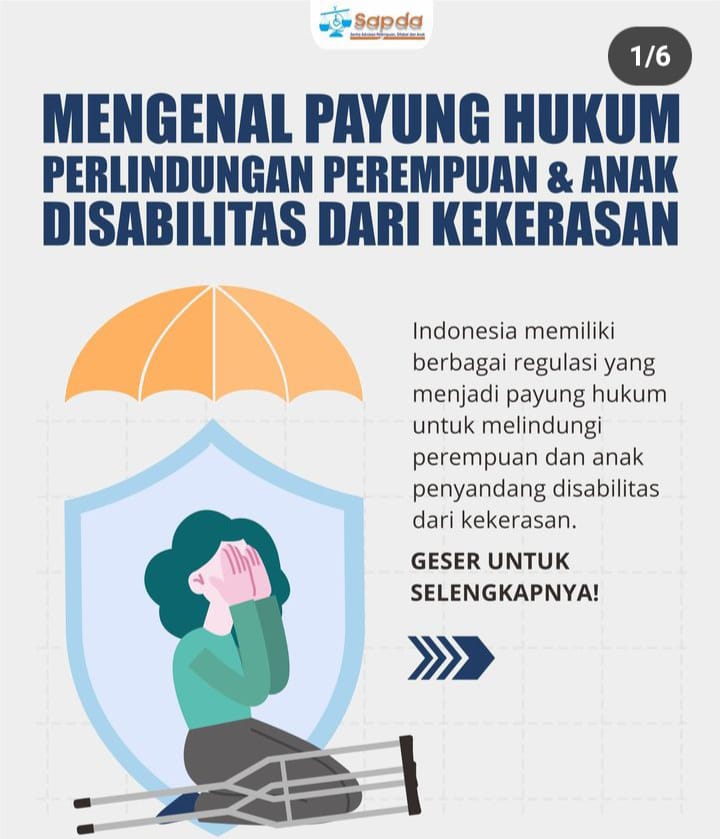Cited from @sapdajogja Instagram, Indonesia has regulations that protect women and children with disability from violence.
1. The 1945 Indonesian Constitution. This guarantees freedom and protection from discriminatory treatment, and to enjoy equal opportunities and benefits towards equality and justice.
2. Convention on the Elimination of All Forms of Discrimination against Women. This obliges ratifying State to eliminate discrimination against women, and to take right actions to change social practices that subordinate women.
3. Law No. 39 Year 1999 on Human Rights. This guarantees the rights of every person to get human rights and basic freedom protection without discrimination.
4. Convention on the Rights of People with Disability. This acknowledges the greater risks for people with disability to experience violence and obliges the ratifying State to protect people with disability from all forms of violence.
5. Law No. 35 Year 2014 on Child Protection. This guarantees children’s rights, including rights of children with disability, to get special protection and social rehabilitation (including in post-violence context).
6. Law No. 8 Year 2016 on People with Disability. This guarantees people with disability to get special protection from multi-level violence and discrimination, including accessible related services.
7. Law No. 12 Year 2022 on Sexual Violence Crimes. Thir regulates the rights to prevention, protection, and handling of victims of sexual violence, including guarantee of accessibility and proper accommodation for victims with disability.
8. The Regulation by the Minister of Women Empowerment and Child Protection No. 2 Year 2022 on Service Standard for the Protection of Women and Children. This regulates service standard for accompaniment of victims of violence, which includes attention to be given to the challenges and needs of women and children with disability. (Ast)













